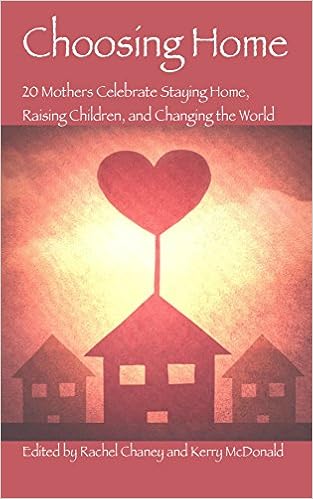
We walked by a city elementary school as the kids were just being called inside from recess. My son asked: "Why do some parents send their kids to school?"
I paused for a moment, wondering how to respond to this pointed question that I frequently ask myself.
I replied: "Maybe it's because they don't know there is another way."
More than a century-and-a-half of compulsory schooling, based explicitly on the Prussian model that was designed--in no uncertain terms--to create an obedient, compliant, conforming workforce, has led most of us to believe that the only way to learn is through schooling. And forced schooling at that.
The most insidious consequence of this compulsory schooling experiment is the underlying message it sends to all of us that learning is unpleasant and arduous and therefore must be mandated under the threat of force. Schooling may be unpleasant and arduous. But learning most certainly is not.
"It is, in fact, nothing short of a miracle that the modern methods of education have not yet entirely strangled the holy curiosity of inquiry; for this delicate plant, aside from stimulation, stands mainly in need of freedom; without this it goes to wrack and ruin without fail. It is a very grave mistake to think that the enjoyment of seeing and searching can be promoted by means of coercion and a sense of duty." - Albert Einstein
Learning is the "enjoyment of seeing and searching." Learning is a natural, innate, mammalian process that helps us to explore, discover and make sense of our world. "We destroy the love of learning in children," according to author and unschooling revolutionary, John Holt, "by encouraging and compelling them to work for petty and contemptible rewards, gold stars, or papers marked 100 and tacked to the wall…" Our modern system of schooling destroys this love of learning, as, frankly, it was designed to do in an effort to construct a subservient workforce.
Our modern system of compulsory schooling cannot be reformed. It cannot be reformed because it is wildly successful at what it was intended to do since the first compulsory schooling law in the nation passed in Massachusetts in 1852--a time when literacy rates were near 100 percent and the American entrepreneurial spirit was alive and well. With the influx of Irish (predominantly Catholic) immigrants to Boston in the early nineteenth century, the Commonwealth was getting increasingly diverse. Compulsory schooling was a way to rein in the masses.
As Horace Mann, the acclaimed "father of American public education," wrote to the Massachusetts General Court in 1840: "If the spontaneous productions of the earth were sufficient for all, men might be honest in practice, without any principle of rectitude, because of the absence of temptation. But as the population increases, & especially as artificial wants multiply, temptations increase & the guards & securities must increase also, or society will deteriorate." As Mann's biographer, Jonathan Messerli, writes about the adoption of compulsory schooling laws: "There were…genuine alternatives available. When Americans gradually made their choice, they adopted a form of organization of schooling which permitted them to incorporate ever greater components of what had once been education into a more systematized and formal schooling. The future seemed to be filled with great uncertainty and it was no longer safe to depend on less structured and controlled means."(Horace Mann, by Jonathan Messerli - Andrew Knopf, 1972: pp. 306-307).
But guess what? While Horace Mann was fighting to pass the country's first compulsory schooling law here, his wife homeschooled their children. As Messerli writes in Mann's biography: "From a hundred platforms, Mann had lectured that the need for better schools was predicated upon the assumption that parents could no longer be entrusted to perform their traditional roles in moral training and that a more systematic approach within the public school was necessary. Now as a father, he fell back on the educational responsibilities of the family, hoping to make the fireside achieve for his own son what he wanted the schools to accomplish for others." (p. 429)
Dripping with hypocrisy and intolerance, our modern system of compulsory schooling was designed and implemented to impose structure and control on an increasingly ethnically, culturally, and religiously diverse population. We may think that this model of schooling was founded on diligent research about how children best learn, when indeed it could not be farther from the truth.
There is another way to learn, another way to grow, another way to be educated. It involves recognizing the not-so-rosy origins of our country's compulsory schooling laws and accepting that schooling is very, very different than learning. Schooling is an institutionalized societal construct; learning is a natural condition of being human.
For more insights into moving beyond the paradigm of compulsory schooling, check out our work at Alternatives To School.com.























Love these last posts, thanks Kerry! I appreciate the historical and social-institution/culture context very much. I am also interested to hear how other parents who are unschooling address the question your child posed. Among our friends, the children are not shy to voice their feeling that not going to school is preferable and ask that question regularly, often to children who do attend school. Thank you and keep it coming please.
ReplyDeleteI think Kerry handled the question well. Too often, I hear other homeschooling parents badmouth school to their kids, and I strongly disagree with that. Our kids are going to encounter "regular school" kids as friends, neighbors, teammates, co-workers, etc., and it's important to me that my kids understand the choice we've made without demonizing the other choices. I believe it is sufficient for my kids to know the facts of the situation ("if you choose to go to school, you'll have to go to bed earlier so that you can wake up in time for the bus"). This is radical, I'm sure, but I take my kids on school tours every so often so that they understand the choice we're making together. Someday, I expect that each of my kids will want to try school, and that's fine with me. Our unschooling life is pretty awesome, so I'm not worried that they'll choose school for very long. If a school situation were that great, outstanding!
ReplyDeleteKatie, I'd love to hear how the schoolchildren answer the question of why they go to school!